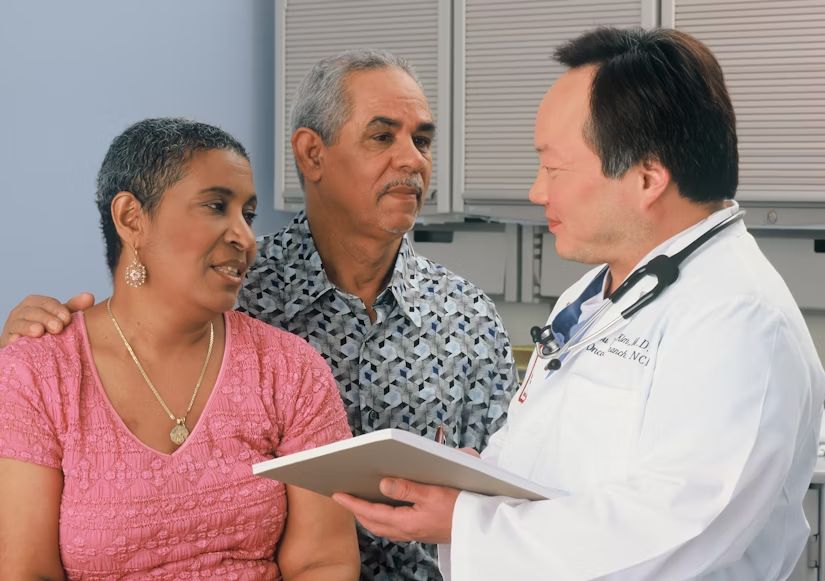Common misconceptions surround whole body donation programs, creating confusion for families considering this end-of-life option. Understanding legal requirements, eligibility criteria, and family considerations helps them make informed decisions about contributing to medical education and research.
Many families face difficult decisions when planning end-of-life arrangements for themselves or loved ones. Traditional burial and cremation remain popular choices, but a growing number of people wants to explore alternatives that serve a greater purpose. Questions about donation programs often arise during these sensitive conversations, yet reliable information can be hard to find.
Searching for “whole body donation near me” reveals numerous programs across the country, each with different requirements and processes. Families discover that reputable programs operate in most major cities, offering structured pathways for those who want their final act to advance medical knowledge. Geographic proximity matters less than program reputation and transparency when making this important choice.
Whole body donation represents a meaningful way to contribute to medical education after death. Medical schools rely on donated bodies to train future doctors, surgeons, and healthcare professionals. Without these generous contributions, medical students would lack the hands-on learning opportunities that textbooks cannot provide. Research institutions also benefit from donations, using them to study diseases and develop new treatments.
Understanding Program Requirements
Eligibility Criteria: Most programs accept donors between ages 18 and 85, though some extend these limits based on individual circumstances. Pre-existing medical conditions rarely disqualify donors, as various conditions actually benefit medical education. Programs typically require advance registration, allowing time to complete necessary paperwork and inform family members about the decision.
Age restrictions exist primarily for practical reasons rather than medical ones. Bodies that are too young may not provide the anatomical development students need to study. Very elderly donors sometimes present challenges due to extensive medical interventions or medications that affect tissue preservation. Each program maintains specific guidelines based on their educational objectives.
Legal Considerations and Documentation
Consent Requirements: Federal and state laws govern whole body donation, requiring explicit written consent from the donor or legal next-of-kin. Documents must be witnessed and notarized, in many jurisdictions. Families cannot override a donor’s written wishes, but they can refuse donation if no advance directive exists.
Legal documentation protects both families and institutions from potential disputes. Some states require a waiting period before donation can proceed, giving families time to consider their options. Programs maintain strict confidentiality regarding donor identities and provide detailed information about how bodies will be used for educational purposes.
Financial Aspects Families Should Know
Cost Considerations: Reputable programs typically cover all expenses related to transportation, preparation, and final cremation of remains. Families save thousands of dollars compared to traditional funeral arrangements. Some programs return cremated remains to families after educational use, which can take several months to complete.
The financial relief often surprises families facing expensive funeral costs. Traditional burial expenses can exceed $10,000, including casket, burial plot, and ceremony costs. Donation programs eliminate most of these expenses, though families may choose to hold memorial services separately.
Addressing Common Misconceptions
Several myths persist about donation programs, which deserve clarification:
- Programs accept bodies with most medical conditions, including cancer and organ transplant recipients
- Religious objections are less common than many people assume
- Bodies are treated with dignity and respect throughout the process
- Families can still hold funeral or memorial services
- The process does not interfere with organ donation for transplant purposes
Religious perspectives on body donation vary significantly between denominations and individual beliefs. Many faith leaders support donation as an act of service to humanity. Families should consult their spiritual advisors when religious concerns arise.
Family Decision-Making Process
Communication Strategies: Open discussions about end-of-life wishes prevent confusion and conflict when decisions must be made quickly. Families benefit from understanding the donor’s motivations and ensuring all relatives respect these choices. Written documentation removes ambiguity and provides clear guidance during emotional times.
Some family members initially resist the idea of donation, often due to misunderstandings about the process. Education about the dignified treatment of donors and the significant impact on medical education helps address these concerns. Support from program coordinators can facilitate family discussions.
Whole body donation programs offer families a meaningful alternative to traditional end-of-life arrangements. Understanding eligibility requirements, legal considerations, and program procedures helps families make informed decisions that honor their loved one’s wishes. These programs depend on generous donors who recognize the lasting impact their contribution makes to medical education and research.
Families considering this option should contact reputable programs directly to discuss specific questions and begin the registration process.
Featured Image Source: https://images.unsplash.com/photo-1631217873436-b0fa88e71f0a?q=80&w=825&auto=format&fit=crop&ixlib=rb-4.1.0&ixid=M3wxMjA3fDB8MHxwaG90by1wYWdlfHx8fGVufDB8fHx8fA%3D%3D
